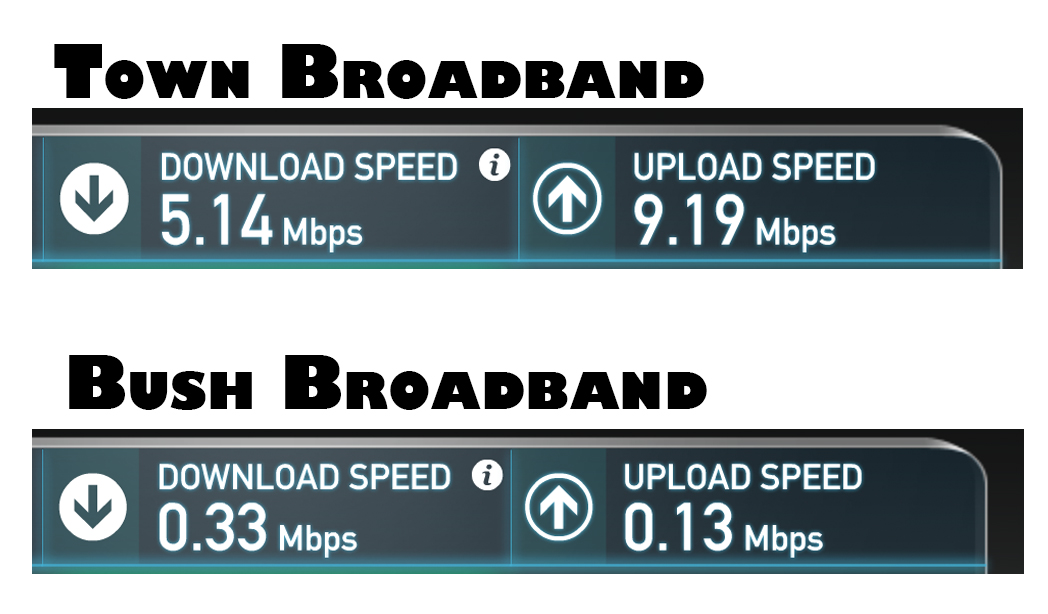
Taking on the Data Drought
An edited-down version of this piece was posted on ‘The Drum’ (ABC Online) yesterday as a preview for the ABC Landline TV show on the ‘Data Drought’ running at noon tomorrow. I wanted to share the full post here.
——————————-
While most of you will know about the terrible drought that has a stranglehold on vast tracts of inland Australia, I wonder how much you might know about the data drought which has slowly crippled these same regions (and some town areas) over the past year?
I have been asked to paint a picture for you – to share what it is like to live (in this day and age) with what is ironically termed ‘bush broadband’.
Have you ever had a dream that you are watching on helplessly, as a boat pulls out from the dock that you are sure you are supposed to be on?
That strange, sinking feeling is being experienced by much of rural Australia at the moment, as we deal with increasingly hobbled connections and ever-evaporating data limits. The ‘boat’ pulling away from us is one that’s taking people somewhere special – a place where time is rarely wasted on virtual ‘spinning wheels’ and resulting blood pressure levels are consistently healthy. A place where you can pay your mountain of monthly bills in minutes, where accounting clouds are beautiful possibilities and where no-one will cuff you around the ears and call you a ‘data hog’ if you contemplate downloading a movie.
A brief overview of the current setup for you: rural and remote Australia is currently ‘hooked up’ to the world wide web via two main platforms:
WIRELESS (for those who can get any kind of mobile phone service even if it is only a single bar); and
SATELLITE (for those who CANNOT).
Wireless internet is incredibly expensive and has low limits. A customer (from Charters Towers) recently illustrated her situation like this:
“Where I live (in Rural Australia) the only internet that is available to me is Telstra/Bigpond Wireless, which is capped at 25GB per month at a cost of up to $170/mth.
Foxtel is offering people who can access ADSL (mostly cities and towns) 1 Terabyte for $130.
That’s 40 times the monthly data allowance for up to $40 cheaper.
… it would take 40 months (for me) to access that much internet data. That’s over three years. It would also cost me around $6800. ”
‘Interim satellite service’ (ISS) is marginally cheaper than wireless (we pay $90/month for 25GB ‘on peak’) and has been seriously oversold (according to NBN) by Internet Service Providers (ISPs). This satellite, designed to provide internet for 48 000, has been sold to 250 000 households. The result? Close to dial-up speeds and ever-decreasing data limits for many end-users (who had no control over the root cause). Satellite users cannot access ‘top up’ or additional data packages.
Now please don’t get me wrong – I (and most other bush broadband users I know) don’t begrudge FOR A SECOND anyone enjoying great broadband connections. If you’ve got it, that awesome. If you’ve managed to somehow nab a great connection beyond your nearest city limits, you have taken out the Australian internet lottery. But, unfortunately, for most of the people who grow Australia’s crops, raise it’s beef, pork and lamb and inhabit over 90% of this wide brown land, there is no sign of equity and the term ‘broadband connection’ is a bit of a joke. And not the kind that is making us laugh out loud…
Internet use has become (whether we like it or not) absolutely crucial in our everyday lives – it’s the way business, organisations, governments and communities most often choose to communicate. A United Nations report has even found that broadband access is a ‘basic human right’.
The internet has provided the most remarkable tools in our business and offered social networks which remove much of our sense of isolation, despite geographic hurdles. Some of the greatest advances in our business, and some of my best friendships, have been enabled by the world wide web – it’s fair to say I am a fan.
My husband and I run a stud and commercial beef cattle property and while many of our physical tasks remain as they have done for decades, we have done our best to move with the times. Through the internet, we have take
n on new ways of managing our herd, utilised tools to ensure we achieve ‘best practice’, schooled ourselves on the latest innovations and management breakthroughs. I am also a photographer, and run a small business utilising that skill as a sideline.
Nine years ago, we made the decision to hook up to satellite internet, as our dial-up connection became incapable of handling an increasing number of online tasks. We took a stab at choosing an ISP – selecting one who offered decent data packages for reasonable (promised) speeds.
They sent a technician who travelled out to our place and installed a dish on our roof. Voila! Broadband Internet access! We renovated our business website, and as I learned a bit about wordpress platform, I took over updating it too.
Unlike most urban home connections, the majority of bush broadband accounts must take care of a small-medium business, the educations needs of children and adults looking to keep pace with real-world skills, social support networks and (occasionally) entertainment. (NB we are only allowed one satellite connection per address).
The tasks I perform online for our business (similar to so many in the bush) include:
- Online banking (with businesses increasingly reluctant to take cheques as payment)
- Managing our online presence, including website updates and maintenance
- Email correspondence – communicating with clients, sending images, maps and directions for stock inspections, invoicing etc
- Monitoring price grids and booking commercial cattle with buyers
- Submitting our BAS and managing tax payments etc via ATO portal
- NLIS transfers (National Livestock Identification System) demanded for traceability whenever cattle are moved on or off property)
- Downloading of permits for livestock travel
- Stud cattle registrations (and search facilities for stud livestock)
- Monitoring online auction systems (such as Auctions Plus)
- GPS-assisted managing of property (mapping fence lines and planning for best management practices)
- Maintaining and updating Livestock maintenance programs like iHerd
- Marketing (uploading images, advertising, designing and ordering materials etc)
- Responding to mandatory government-generated surveys
- Social media presence (updates and response to enquiry)
Before that last point is questioned, a substantial portion of our stud business enquiry is now generated through Facebook. Potential clients ‘get to know us’ on this platform, message questions through and discuss options before visiting In Real Life to inspect and purchase. It’s a fantastic extension of our website and one of the most useful tools at our disposal.
Like children across Australia, our two also use the internet for education purposes – their schools require them both to have devices which they use to complete homework and assignments. For many using School of the Air (SOTA) lack of decent internet data and speed is creating all kinds of mayhem, with some forced to send their children away to boarding school years too early.
When I get the time (and internet) I also blog about our beautiful corner of the world – I am an ex-news photographer so my blog is a ‘place in space’ that keeps me sane, when the weather and challenges of living beyond the city limits make things tough. It’s also a place that attracts readers from all corners of our country and some incredibly diverse places across the globe. I love that it manages to bridge many divides – geographic, social, cultural – and creates special bonds that would once have been quite impossible. I have a Facebook page supporting this blog, and a great group called ‘Outback Paparazzi’ which helps showcase our beautiful ‘wide brown land’ to bush and city readers alike.
Just over a year ago, my world was turned upside down when I was diagnosed with breast cancer. While I did my best to face down this challenge with energy and focus, the sheer number of kilometres I have had to travel for specialist appointments, surgeries and treatment has been mind boggling. I estimate I have covered around 20 000 km in 12 months (something I accept as a trade-off for living where we do).
A couple of my specialists have offered to Skype with me, to save at least a couple of 1000km round-trips. Unfortunately, our internet service is generally so slow and unreliable that it simply cannot support even a simple Skype-chat.
Part of our problem is that we (accidentally) chose a provider who is in the ‘naughty corner’ with NBN – we were suddenly reduced from 60GB to 25GB (on peak) in April this year. This change took place just as I was also rebranding our business in time for the biggest event in our marketing calendar (Beef 2015). The unexpected timing of data reduction was (as you might imagine) not great.
For those who have not been ‘shaped’ by their ISP (which happens when you exceed your data limit) it’s not a fun experience. Almost all online activity becomes close to impossible. Regardless of whether bills are due, whether your child needs to use it for research, whether your other forms of communication are out (power and telephones are the first things to go in many rural areas during storm and other severe weather events).
We actually got shaped so hard after new low limits were imposed that I couldn’t even send an email. A basic text email. This screenshot shows our speed – my internet doing an impersonation of a glacier…
Unlike previous shapings, we had no warning our service was about to be interrupted, and it took multiple phone calls to our ISP and NBN (both of whom denied shaping us) to finally discover that a BRAND NEW rule had been brought in – a new rolling 4 week data limit, enforced by NBN. No ‘fresh new month’ of data allowance for us.
Basically anyone on bush broadband who looks like hitting 50GB in any four week period is considered a ‘data hog’. Which seems a bit rough, considering NBN themselves have published a report that found the ‘average’ Australian internet user uses 58GB/month and the average NBN user, 67 GB/month.
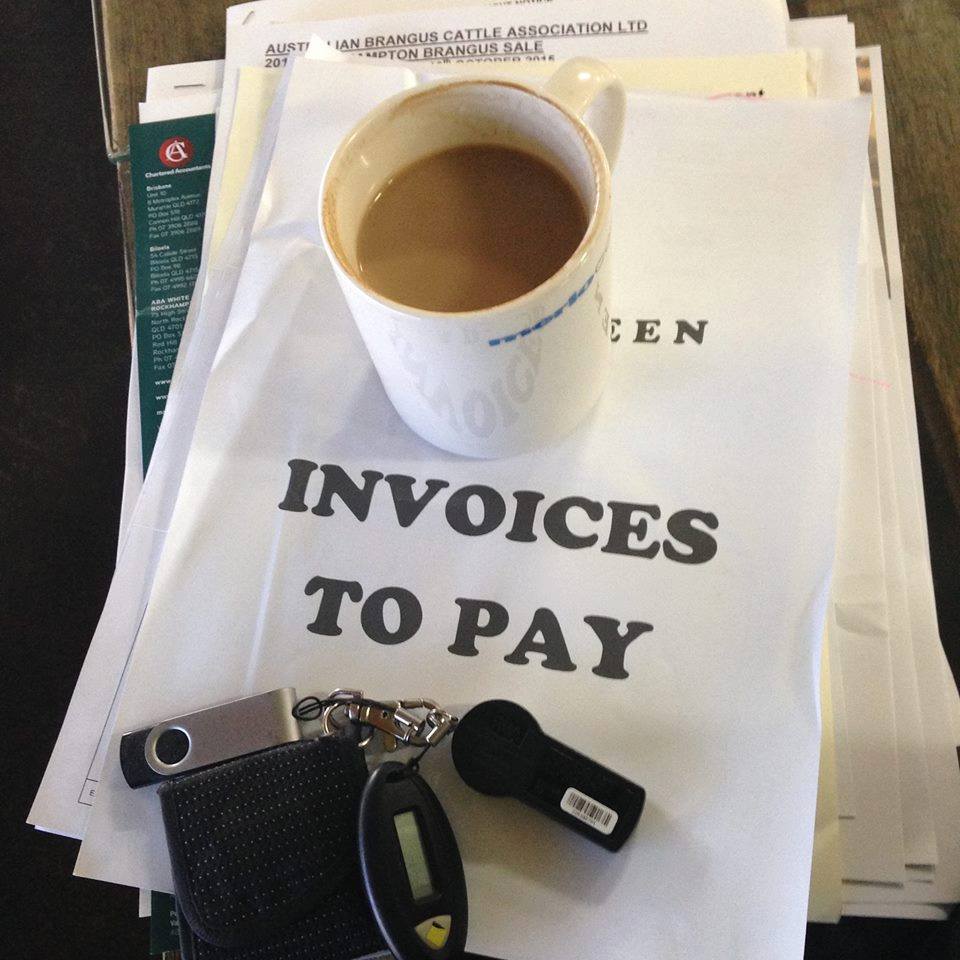 What did this extra-harsh shaping actually mean for me? It meant that, on top of travelling for chemotherapy and surgeries, I have also forced been to travel to seek out mobile service in order to make sure our business meets its obligations. In our case, that’s a 100km round trip to our nearest town where I hotspot my phone to pay bills, send files required for our business, check emails and do website updates and software updates.
What did this extra-harsh shaping actually mean for me? It meant that, on top of travelling for chemotherapy and surgeries, I have also forced been to travel to seek out mobile service in order to make sure our business meets its obligations. In our case, that’s a 100km round trip to our nearest town where I hotspot my phone to pay bills, send files required for our business, check emails and do website updates and software updates.
Like many desperate to improve our connections – both by managing our own data better and by lobbying government, the NBN and ISPs to provide better services – I reached out to a terrific resource: the “Better Broadband for Rural, Regional and Remote Australia’ Facebook page. BIRRRA was started up by three energetic bush women earlier this year – women who had had enough of shocking internet while trying to school their young children (via School of the Air – SOTA). They have battled (and had a couple of significant wins) in getting SOME bush connections unmetered (for education sites ONLY). The page now encompasses all bush broadband issues, is respected by not only frustrated end users, but also many ISPs, the NBN and government (who all have reps as page members).
Using data saving tips from BIRRR, we have become experts at turning off ALL automatic software updates (often the culprit when a household goes sailing unexpectedly over their data limit), at banning all You Tube and other data-hungry sites and apps, at jumping on our poor visitors for using data they wouldn’t think twice about at home.
Despite this, even our unshaped speeds remain terrible. This comparison was done last week – the first reading when I was in town on wireless hotspot, the second at home.
That’s quite a ‘data divide’ – and one that’s show no signs of slowing down.
There are stories from BIRRR so much more dramatic than ours – where children have had to be sent away to boarding school years earlier than planned, because education has been impossible on hopeless connections. Where businesses have been shut down as a direct result of unreliable internet. Where people (unable to complete necessary online forms) have travelled hundreds of kilometres to the nearest Centrelink offices, only to be been turned away from and told to ‘complete their activities online’. I worry too, that as the drought tightens its grip on central Australia, vital support services and networks which are so crucial to mental health will be unable to be easily accessed.
While we applaud the launch yesterday of NBN’s spanking new fix-all ‘Sky Muster’, we have been told (by NBN and government reps) that we must simply put up with our current service and wait anything up to 18 months to see the benefits of this new satellite. (And by some calculations – 20-40 000 connections @ 5 500 /month – up to six years before everyone is on board).
As the rest of the business, education and social world pulls away from us, riding the virtual wave of opportunity the internet provides, we know that ‘waiting’ is just not an option.
We need the NBN, the government, the ISPs and Telstra to stop playing ‘the blame game’ with each other. The loads need to be taken off our overloaded interim satellite urgently, to allow those living beyond mobile service areas – the vast geographic majority of Australia – to access just a decent portion of what is available in NBN-serviced cities.
We need our mobile and wireless services across this continent to be extended and upgraded – helping not only residents but travellers stay in contact along highways currently uncovered by our networks, and encouraging a bit of de-urbanising of our overpopulated centres. Surely scenario that is a win-win-win for us all?
We need our new Prime Minister – until recently the ‘Minister for NBN’ who already knows only too well our situation – to help #FixBushBroadband.
Not next year, or the year after.
Now.
—————
ABC Landline will be featuring a story on the ‘Data Drought’ on Sunday at noon.
You can follow BIRRR on Twitter and join as a member here (hashtag #FixBushBroadband)
And yes, we get the irony of depending on the internet to get our internet fixed.
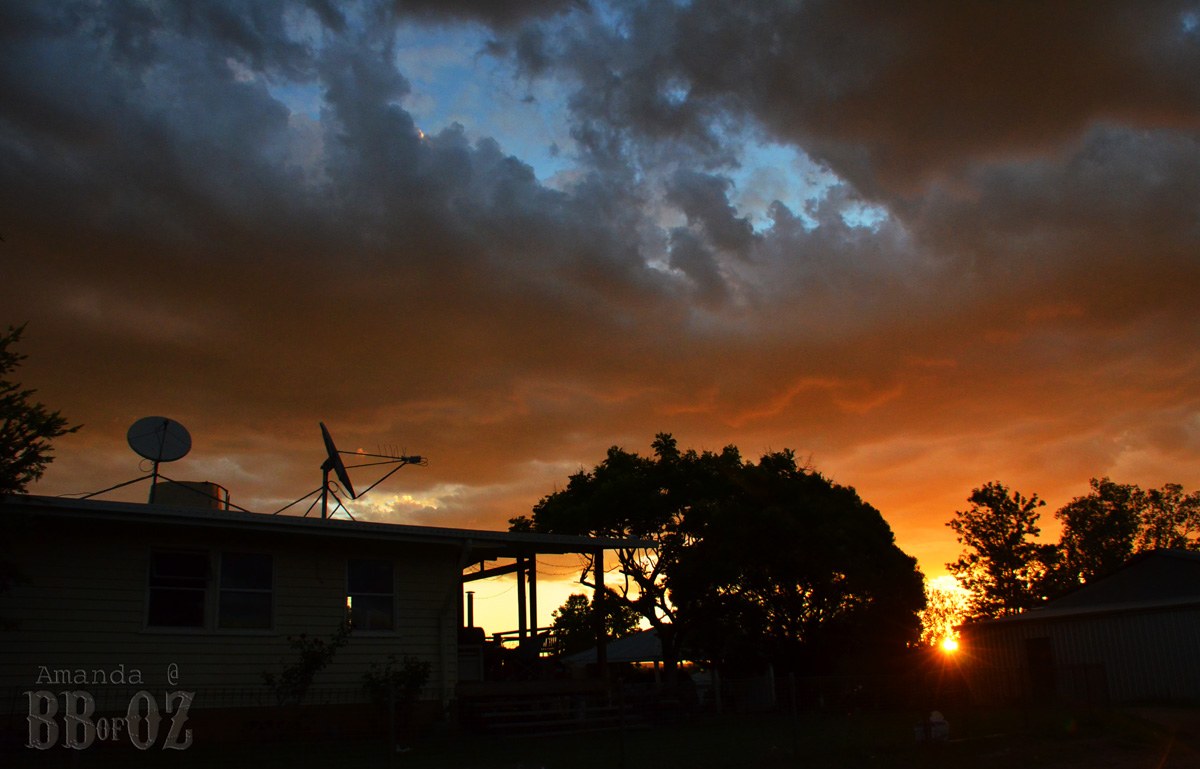


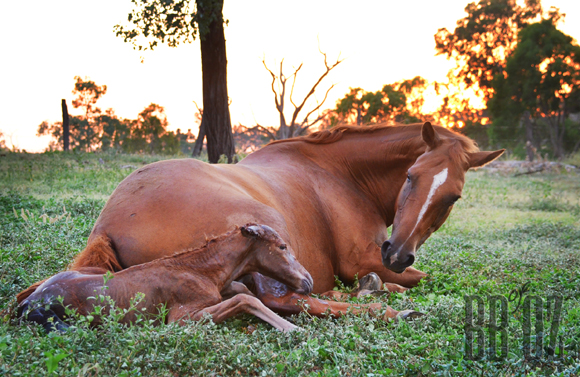
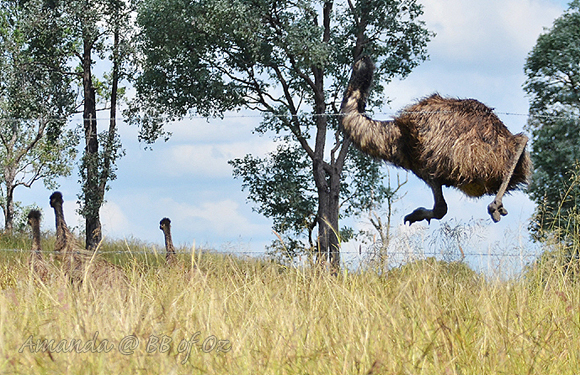
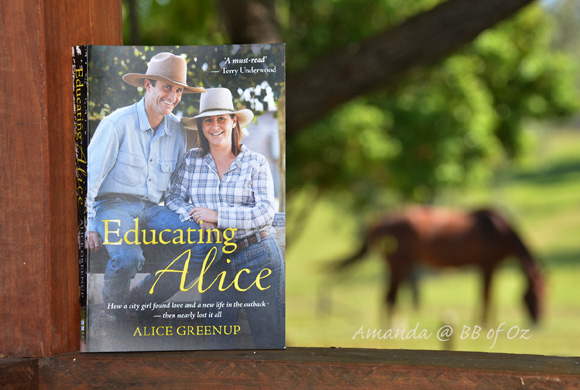
3 Comments
Andrew
Dear Malcolm. Unlike The Abbott, who primary producers voted in droves for and led them to such disappointment, you know about tech stuffs. It is not hard hey. Satellite in the sky and if that one gets too busy, put up another. Lordy, the Post Master General department used to look after our communications and cross subsidise. While I am so happy with my new phone and the cost of it, I am also quite happy to pay within my bill a subsidy for country folk to ensure they have good internet service. Over to you Malcolm.
Andrew´s last blog post ..For the lexicon
BB
Oh Andrew… that comment (and I have to admit I didn’t expect ANYONE to make it to the end, this post is SO long!) made my week. You know, on the BIRRR page, so many city peeps have made this offer. So beautiful it makes me cry… how I wish we could make that work. I certainly thing that Telstra should help shift data over in this manner where it is offered. Such a shame each player (NBN, Gment, ISPs, Telstra) just point their fingers at each other rather than work together to help us out…
April
Australia hooked up to the world wide web via two main platforms:Wireless and satellite. And the accounting clouds help those who wants to transform their business.